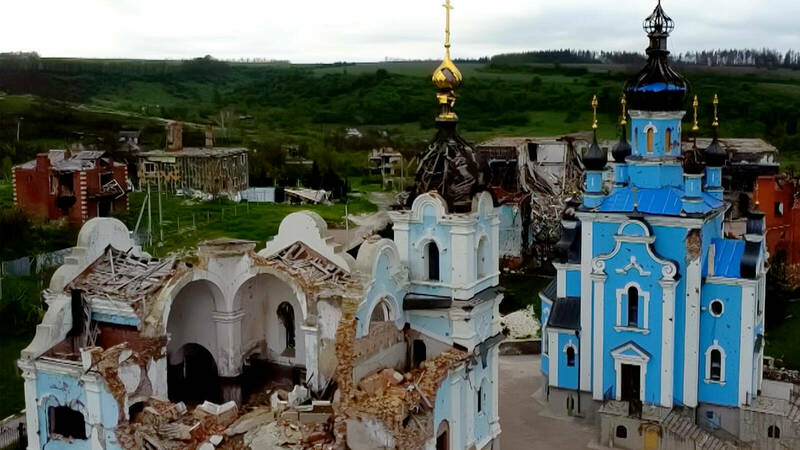Fighting for our cultural heritage
In February 2022, when Russia invaded Ukraine in an effort to overthrow the Ukrainian government, the world looked on in horror as one sovereign nation invaded another. Then came Russian atrocities in Bucha. Coastal blockades. Offensives and counteroffensives. International condemnation and sanctions. And now, a war that has dragged on for nearly two years.
Back in 2022, at Notre Dame, the response was swift and decisive. President Rev. John I. Jenkins, C.S.C., wrote,
“The former oppressors of Ukraine are now known by another name and are waging war under a different flag, but the trauma is no less today than in the past in this nation that has suffered far too much. Now, more than ever, our friends in Ukraine are in need of healing and hope.
“We at Notre Dame stand in solidarity with all peace-loving people worldwide in demanding an end to this invasion of a sovereign nation. This unprovoked war is an international abomination and must stop now. Until it does, may God keep safe all of the innocent men, women and children who are currently in harm’s way. The prayers of the Notre Dame family are with them.”
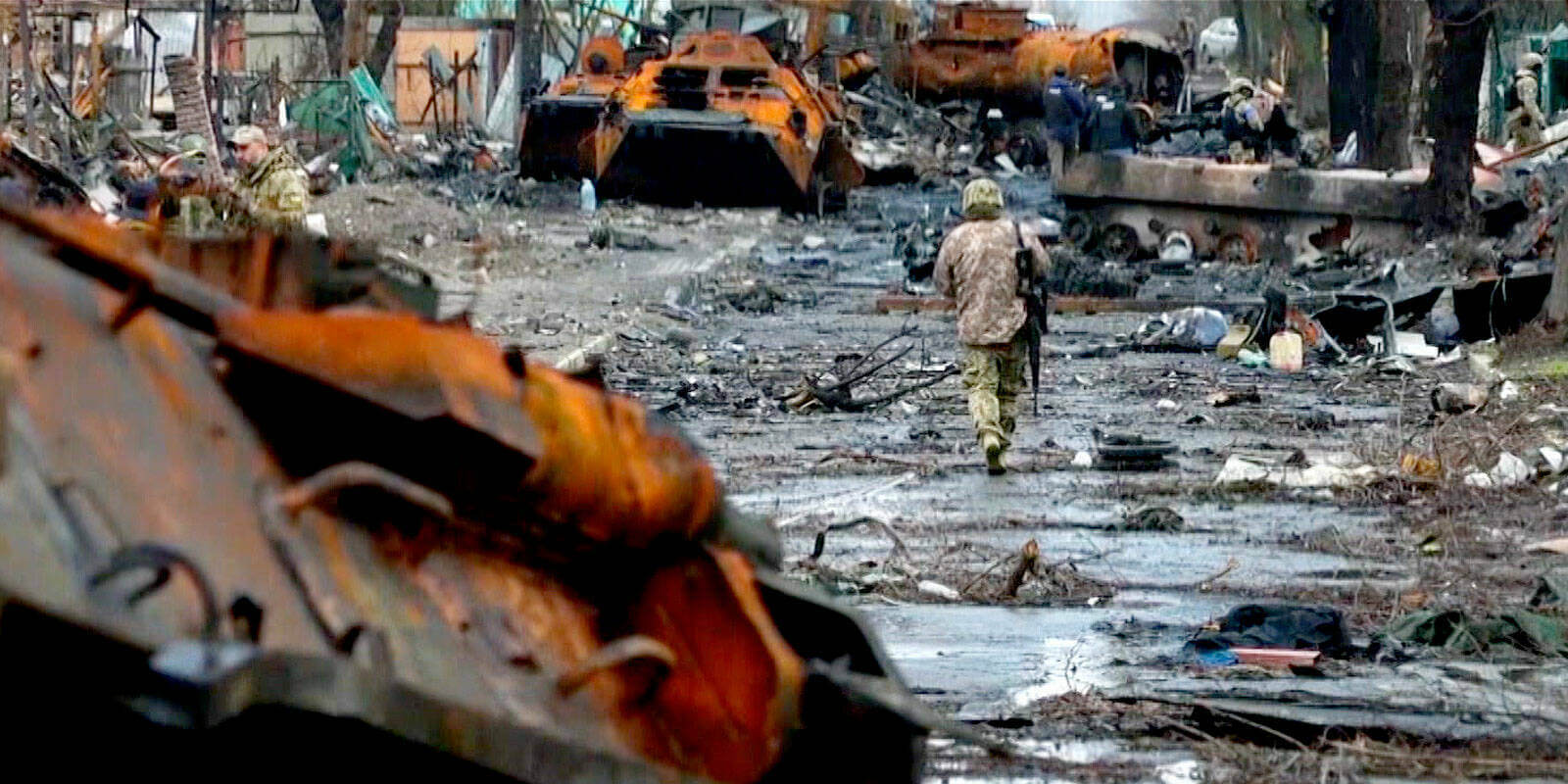
The relationship with Ukraine, and specifically with the Ukrainian Catholic University (UCU), began nearly 20 years ago in the wake of the collapse of the Soviet Union. More recently, Father Jenkins awarded Ukrainian Catholic Archbishop Borys Gudziak, the president of UCU, the 2019 Notre Dame Award for his commitment to religious and academic freedom. And in 2022, Archbishop Gudziak offered the Notre Dame Commencement Address.
So it’s no surprise that when Russian tanks rolled into Kyiv, Notre Dame was quick to call its friends in Lviv to ask, “How are you? And how can we help?” says Michael Pippenger, Notre Dame’s vice president and associate provost for internationalization.
“Catholic social teaching challenges us, invites us, exhorts us to be in solidarity and to protect the dignity of every individual person. When our colleagues’ country was invaded, and their education and their family lives and their professional lives were all put in jeopardy, we felt a call to act,” he says. But acting, in this case, meant listening, he underscores.
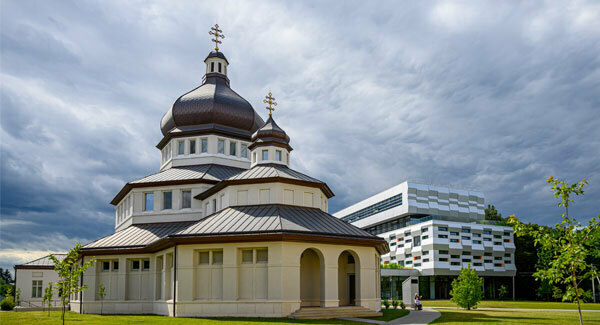
“The University did not presume to know how we could best help, so we started by having a weekly call,” he explains. “They talked to us about the need to support faculty and students and to imagine ways in which the horror of war could be turned into something that could be studied and could be a mechanism for resilience for the University to come out stronger than ever at the end of this conflict. Hearing that from them allowed us to imagine a package of initiatives that would support the entire university, helping it to continue to flourish.”
The proposal was multi-pronged and comprehensive, so much so that it was awarded the 2023 Institute of International Education Heiskell Award for Strategic Partnerships.
First, Notre Dame would host undergraduates on campus for a semester. To date, 28 students have joined the campus community.
Second, graduate students and postdocs were invited to engage on campus or in one of Notre Dame’s 12 global locations.
Third, administrators were invited to South Bend for leadership and capacity-building workshops.
And finally, Notre Dame International created two faculty-specific grants. One would allow for joint-faculty creation of a course or curriculum. The other is a faculty research grant program that encouraged faculty from Notre Dame and UCU to partner on a joint project. Ranging from understanding resiliency to using satellite imagery to detect discarded mines, 21 proposals were awarded grant funding.
One of those successful proposals was from Ian Kuijt and Bill Donaruma.
***
Kuijt is a prehistoric archaeologist and anthropologist by training. He’s worked in places such as Jordan, Syria, and, for the last 16 years, off the west coast of Ireland. Looking at multiple islands he is piecing together an understanding of island life over the last hundred years.
Donaruma is a professor of the practice in filmmaking. After a career at Universal Studios, he now teaches narrative and documentary filmmaking, while also making his own films.
Together the duo has created a niche of documenting overlooked cultures and people, both in their histories and their minutiae, most notably in their short film, Nets of Memory.
So when the opportunity arose to partner with Ukraine, they felt it natural to work with UCU's school of journalism and media communications to teach students the basics in both archaeology and documentary filmmaking. Then those students could be better equipped to identify, record, and preserve their own culture, even as it stands to be destroyed.
“Ukraine is a war about culture. The Russian invasion is not just a military invasion, it is an attempt to destroy Ukrainian heritage and culture." - Ian Kuijt
As Kuijt explains, “Ukraine is a war about culture. The Russian invasion is not just a military invasion, it is an attempt to destroy Ukrainian heritage and culture.
“Russia has targeted an enormous range of cultural heritage in the Ukraine, including everything from churches to museums, to libraries, to schools, to hospitals,” he says. “There’s no doubt that the Russian government at this point, as exemplified by Putin, is trying to rebuild the Soviet era and to rebuild what existed there in the 1950s. So as part of that, it’s a matter of eradicating Ukrainian language, poetry, song, culture, history, all of these different pieces, because by erasing it there’s the potential, at least in terms of the Russian military, to unify, in their minds, what has taken place, to unify this geopolitical world that doesn’t exist anymore.”
In March, Kuijt and Donaruma went to Lviv. They taught the students how to tell their stories. They employed technological tools like photogrammetry on quad-copters to assess bombed churches and worked with the National Academy of Sciences of Ukraine. They saw medieval graveyards with trenches dug through them. Museums in danger of being looted. They interviewed the residents who had witnessed, and survived, unspeakable tragedy. And through it all, they kept asking both themselves and the UCU students, how do you tell those stories in a way that’s digestible by an international audience?
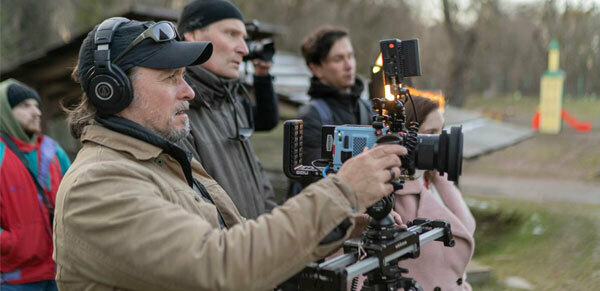
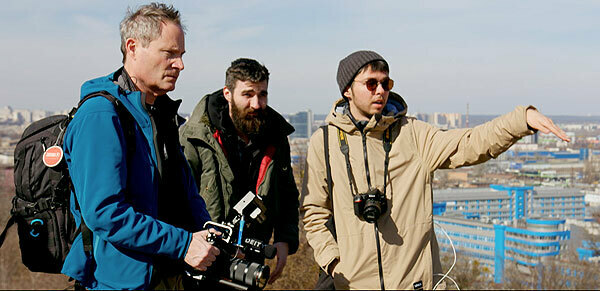
Harkening back to their proposal titled “Profiles of Resistance and Resilience,” Donaruma says, “I think the goal of working with students in Lviv was being able to go in and have a perspective, and looking at resistance and resilience in light of where they lived and what they’re seeing every day. And being able to actually look at those elements and composing those elements for future storytelling, both on their part and on our part.”
Some of those stories were surprising. He describes a museum curator who was boxing up his life’s work before it disappears. Or a woman using sheet metal to cover up all the stained glass in churches. Donaruma adds reflectively, “It’s extraordinary to see the efforts of resistance and resilience come to life.”
The other result, Kuijt notes, will be a long-running partnership. One they perhaps didn’t envision at the outset.
“The whole process, because of what’s taken place, the speed of it, the magnitude of it, this is a story that is not a one-year project. This is a 20-year project to try and understand and mitigate the kind of destruction of built environments, buildings, and archeology,” Kuijt says. “By starting some of this work now, by helping them understand the kind of destruction that’s taking place, by helping students at universities like UCU understand how we tell stories related to this, it’s going to draw more attention to it. And hopefully that will draw more resources towards trying to mitigate and to try and, at some point, start rebuilding that sort of cultural world that has been maimed and partially destroyed.”
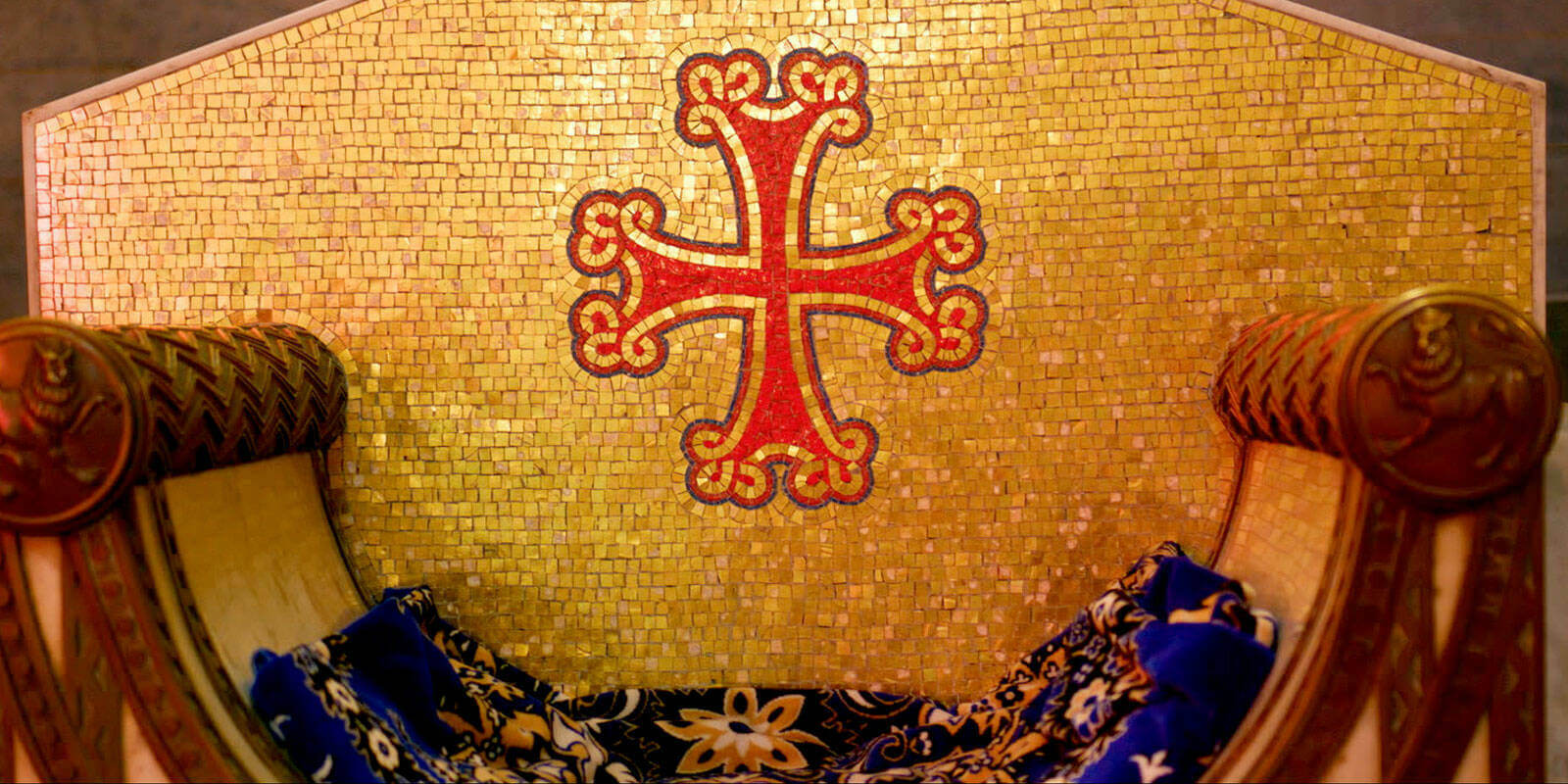
Even in the face of all the destruction, the chaos, the sadness, Kuijt stands by the importance of being there, on the ground, alongside Ukrainians. Not only did it allow a better understanding of the situation in Ukraine, better teaching moments, better opportunities for compassion, but it deepened an already profound relationship between the schools.
“The University of Notre Dame and Ukrainian Catholic University have a very strong bond, one that has historically been a connection between those both in terms of aspects of faith and of moral mission. That has become richer, that’s become deeper. It is perhaps one of the silver linings of what has taken place,” Kuijt says.
That relationship will continue. In July, Russia launched a missile attack on Lviv, hitting just 600 feet from UCU’s campus, and destroying homes, apartments, dormitories and schools.
Unfortunately, it seems there will be much for those UCU students to document and reckon with for quite some time.
Ukrainian Catholic University photo: Matt Cashore, University of Notre Dame
